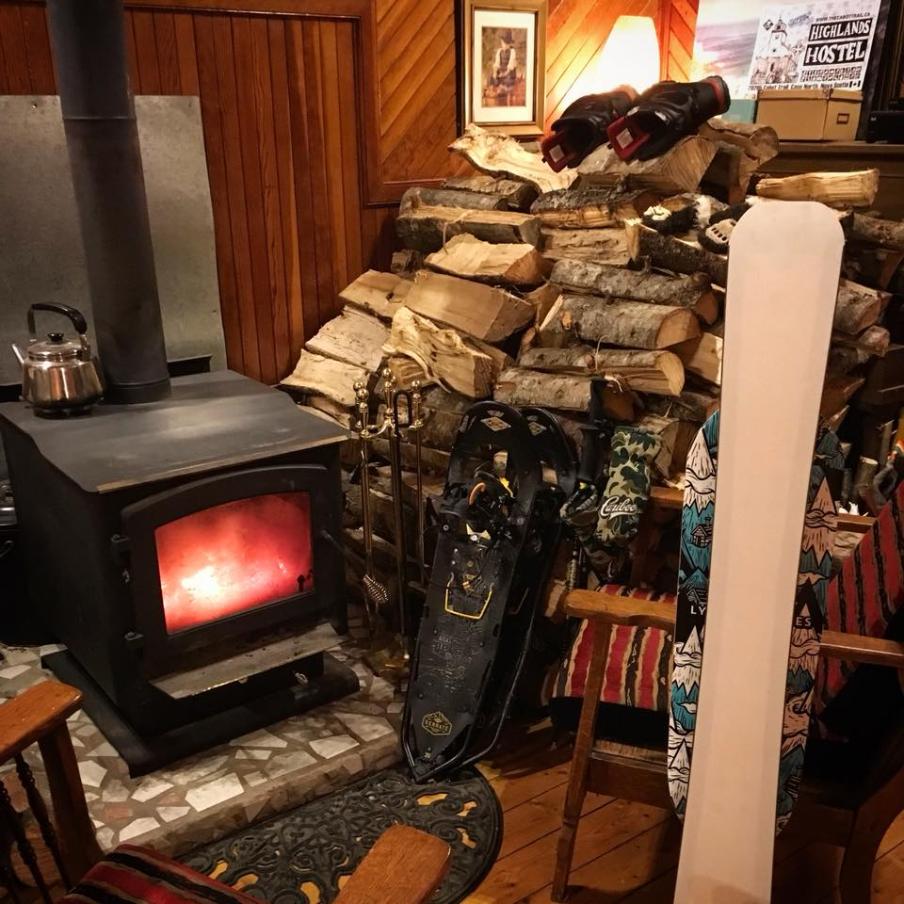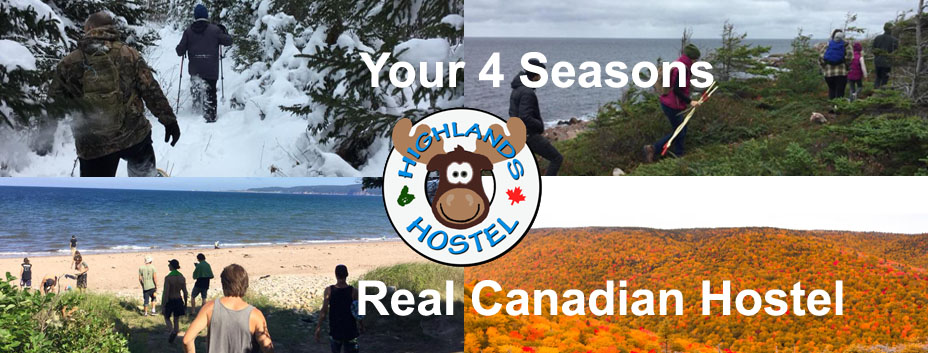Backcountry Skiing
Winter Fun in the Highlands
Over the years we have seen an increase in the number of guests staying with us in the winter to experience the remote wilderness, backcountry skiing in the mountains that surround the Highlands Hostel in Cape Breton, Nova Scotia Canada.Using us as a base camp for their adventures.
Backcountry Skiing in Cape Breton Highlands
Backcountry skiing in Cape Breton, Nova Scotia, offers a stunning and adventurous experience in one of Canada's most picturesque regions. The island is home to rugged mountains, vast forests, and deep snow, creating ideal conditions for those seeking an off-the-beaten-path ski adventure. The Cape Breton Highlands are known for their untouched beauty, where skiers can explore pristine trails, navigate through dense woods, and enjoy breathtaking views of the Atlantic Ocean.
After a day of skiing, unwind in a unique and charming accommodation — The Highlands Hostel a 100-year-old church that has been converted into a cozy hostel. This beautifully converted building, with its tall ceilings, offers a warm and rustic atmosphere, making it an unforgettable place to rest. The hostel can accommodate up to 25 people, has 5 bathrooms and a shared kitchen perfect for groups of friends or families looking for a communal experience. The serene surroundings, combined with the comfort of modern amenities, make it an ideal base for adventurers.
This combination of backcountry skiing and a stay in a converted church hostel provides a truly unique and immersive experience, connecting outdoor thrills with historical charm in the heart of Cape Breton. Whether you're an experienced skier or just looking to explore the landscape, this destination promises adventure and tranquility in equal measure.
Mountains and Trails
We have over 31 trails to rediscover in the winter, plus we have mountains. North Mountain,Mackenzie Mountain,French Mountain, Meat Cove Mountain,Sugar Loaf Mountain,Franey Mountain, White Hill Mountain (Highest Point in Nova Scotia 535M).Plus, we have South Ridge wilderness trails
What is Backcountry Skiing
Backcountry or wilderness skiing refers to skiing on natural, unmarked, and ungroomed terrain, typically outside of traditional ski resorts. It offers an experience in the wild, where skiers venture into remote areas without the convenience of ski lifts, groomed trails, or patrols. Instead, skiers ascend mountains or forests on their own power, usually using specialized equipment like alpine touring (AT) skis or splitboards, and then ski down untracked, natural snow.
The Appeal of Backcountry Skiing in Canada
The primary draw of backcountry skiing is the opportunity to experience untouched terrain. Unlike resort skiing, where runs are prepared and crowds are often present, backcountry skiing offers solitude, freedom, and a direct connection to nature. Skiers and snowboarders are often rewarded with pristine powder snow, wide-open spaces, and the sense of adventure that comes from exploring wilderness areas.
Backcountry skiing also offers a more varied and personalized experience. Skiers can choose their routes based on skill level and preferences, from alpine bowls and glades to deep forest trails and open ridgelines. The terrain can be both challenging and exhilarating, providing a more technical and demanding experience than resort skiing. It also appeals to those seeking a more self-reliant form of skiing, where they must make decisions about their route, weather conditions, and safety.
Equipment Used in Backcountry Skiing
Backcountry skiing requires specialized equipment due to the nature of the sport. Traditional downhill skis are replaced with alpine touring (AT) skis, which have bindings that allow the heel to lift when ascending, allowing skiers to use a climbing motion similar to hiking. These skis are lighter than standard downhill skis to make climbing easier. Splitboards, for snowboarders, serve the same purpose, splitting into two skis for ascent and rejoining for descent.
Skiers also carry skins—adhesive strips attached to the bottom of skis that provide grip for climbing uphill. Once at the top, the skins are removed, and skiers descend like they would on a traditional downhill run.
Other essential gear includes avalanche safety equipment such as transceivers (which help locate individuals in the event of an avalanche), probes, and shovels. A backpack is also used to carry water, snacks, extra layers, and possibly a first-aid kit.
Safety Considerations
Backcountry skiing is inherently riskier than resort skiing, with avalanche danger being the most significant hazard. Avalanches can occur in the backcountry if conditions are unstable, and it is crucial to understand how to assess avalanche risk using weather reports, snowpack analysis, and terrain knowledge. Skiers should be familiar with avalanche safety protocols and carry the necessary equipment to mitigate risks.
Additionally, backcountry skiers must also be prepared for the physical demands of the sport. Ascending the mountain can be taxing, especially in deep snow, and skiers need to have a good level of fitness. Self-sufficiency is key, as help can be far away in remote areas.
Environmental Impact and Stewardship
Since backcountry skiing takes place in natural, often pristine environments, it is essential for skiers to practice good environmental stewardship. This includes respecting wildlife, minimizing impact on fragile ecosystems, and staying on designated trails or areas when possible. Many regions also promote "Leave No Trace" principles, urging skiers to avoid disturbing vegetation or wildlife habitats and to pack out all waste.
Conclusion
Backcountry or wilderness skiing is a thrilling and rewarding activity that connects skiers with nature in a way that resort skiing cannot. It requires specialized equipment, fitness, and a strong understanding of terrain and safety, particularly when it comes to avalanches. For those who seek adventure, solitude, and a deep sense of connection to the outdoors, backcountry skiing offers an unparalleled experience, with the potential for unforgettable runs and unique adventures in the wilderness.
Convinced this is for you then book your stay with us at The Highlands Hostel base camp now. here
Below are some images one group captured while skiing the local mountains.
Here is a Vlog from friends of ours at Live Life In Tents, showing a multi day trip across the highlands
Early morning departure to ski the mountains
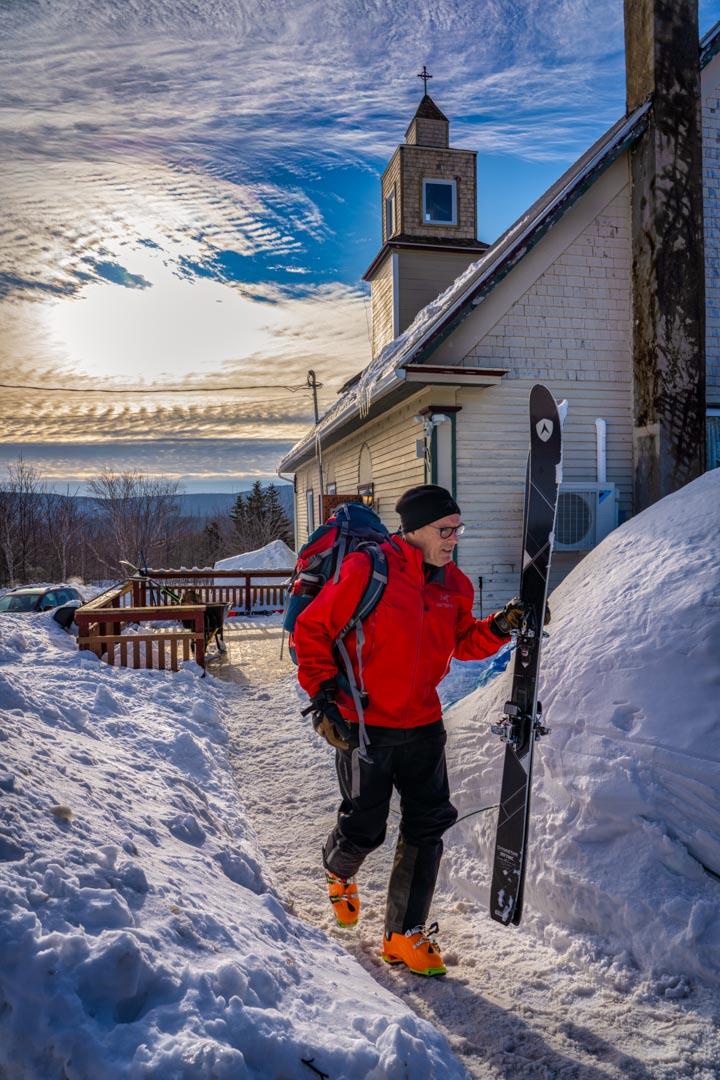
The crew on Meat Cove Mountain
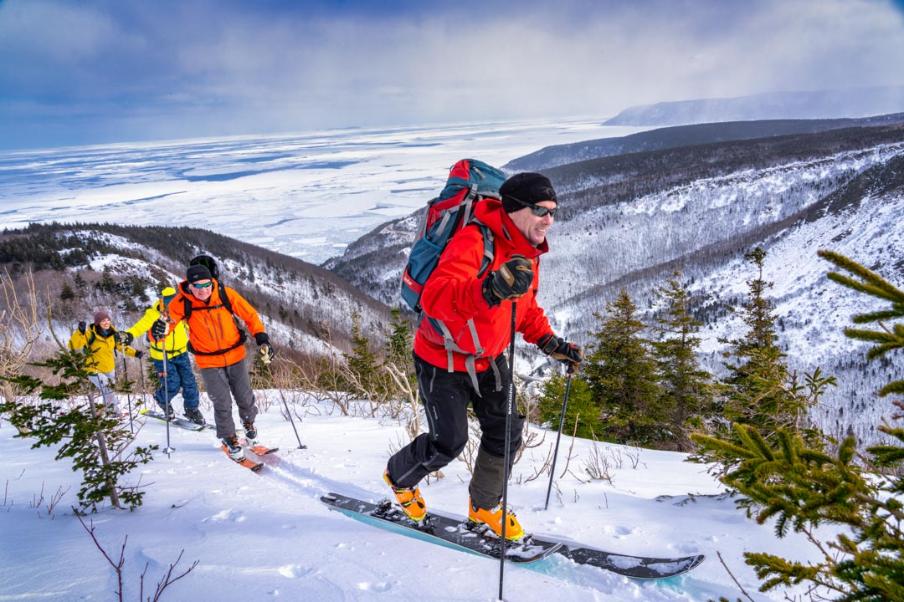
French Gulch
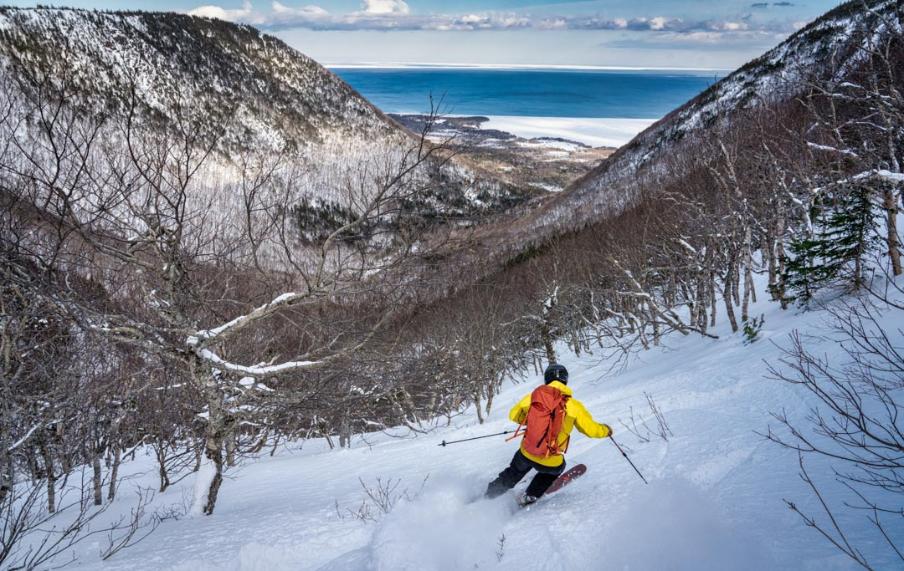
Meat Cove Mountain
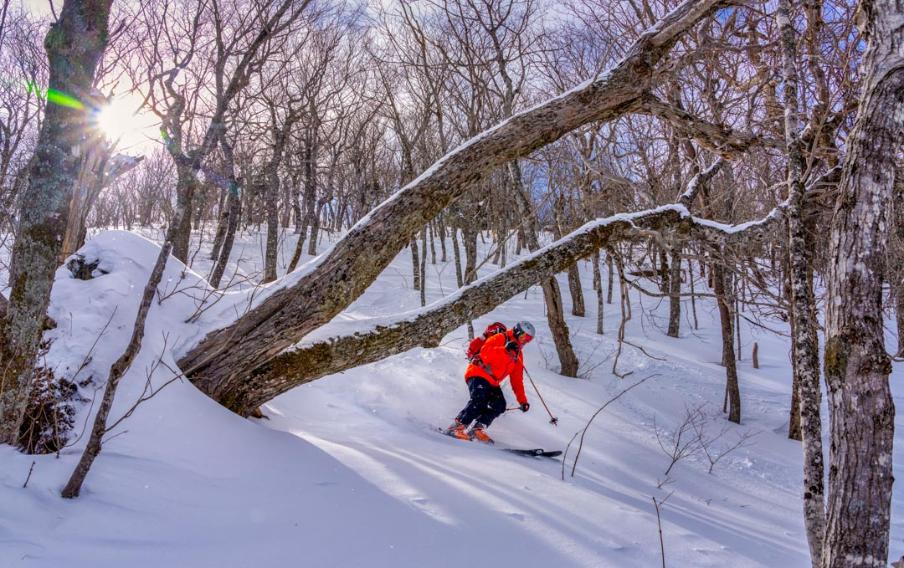
Meat Cove (Aerial by Adam Hill)
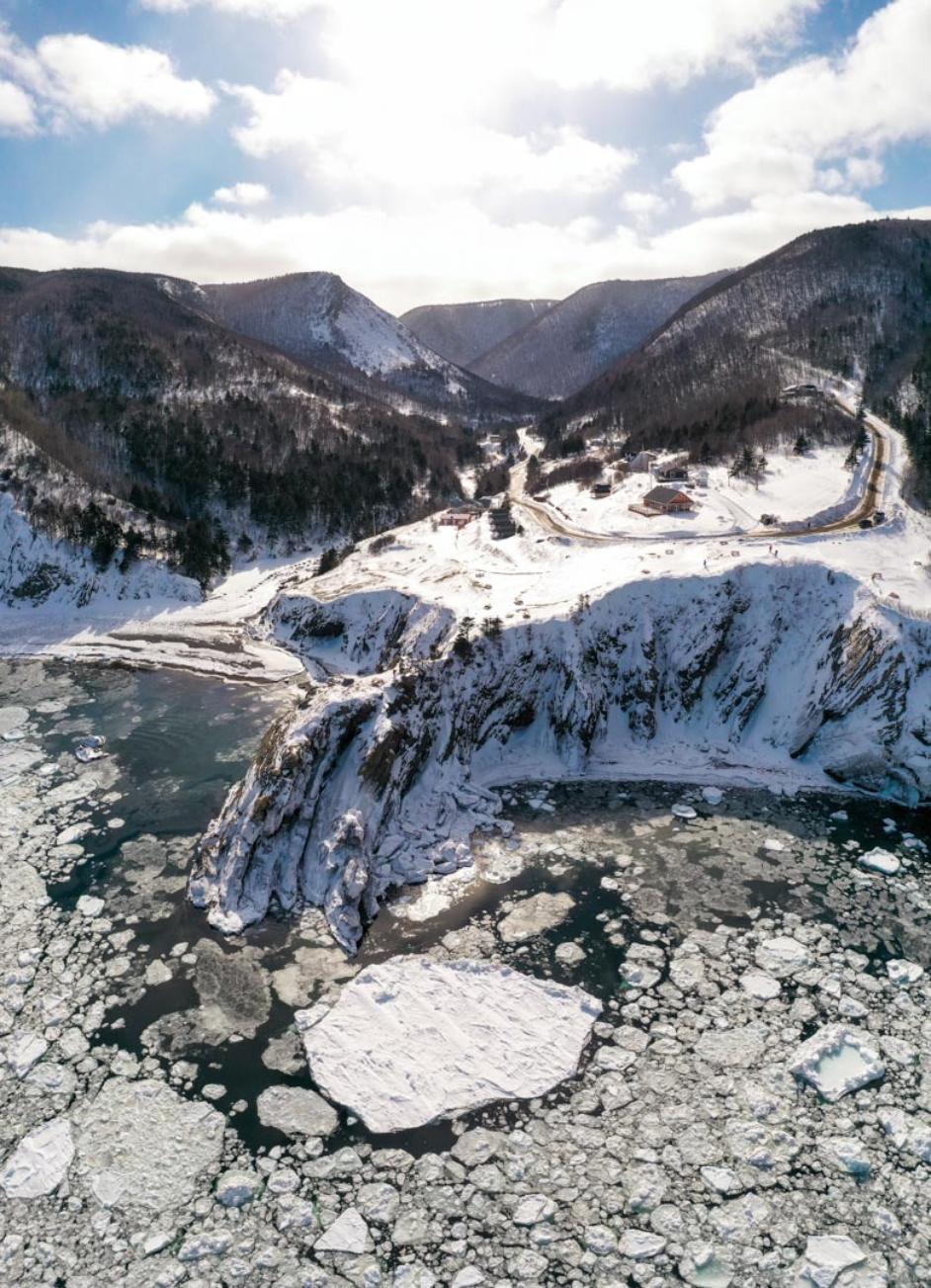
Heading up "Abbey Road" for a kitchen party
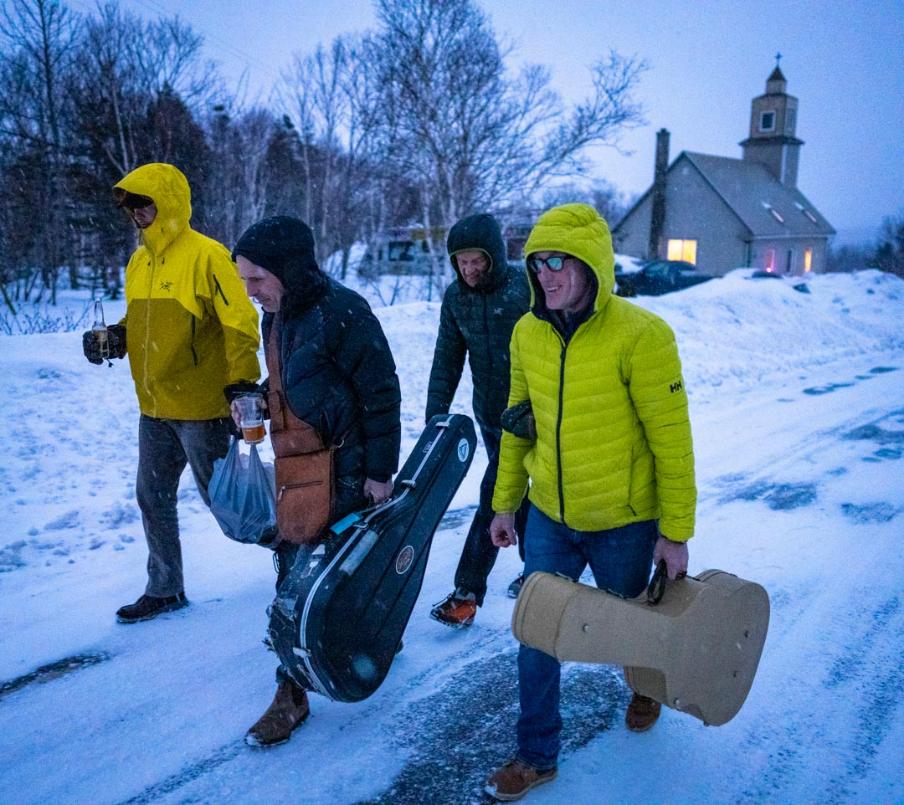
Ready to make some music after a day of skiing
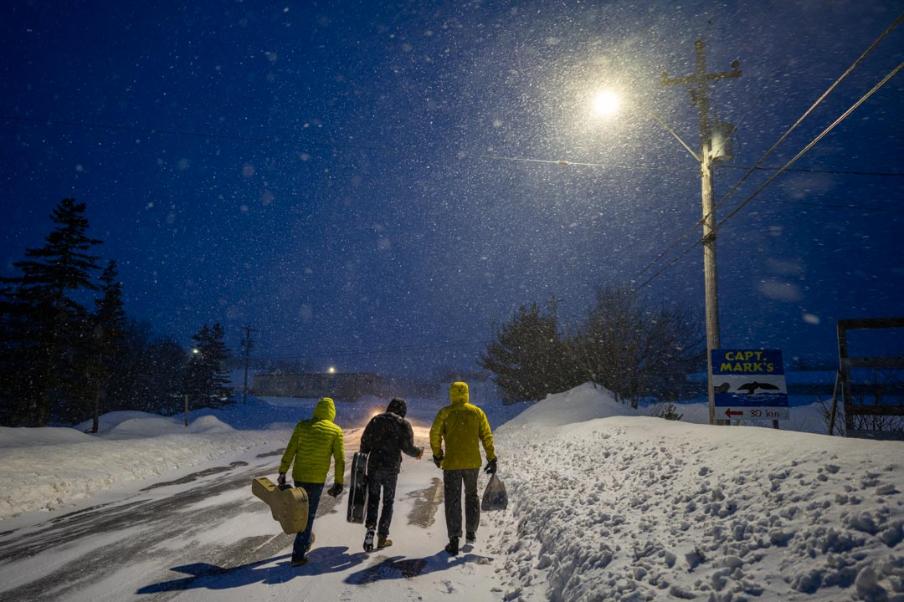
What a better way to end the day with music and friends
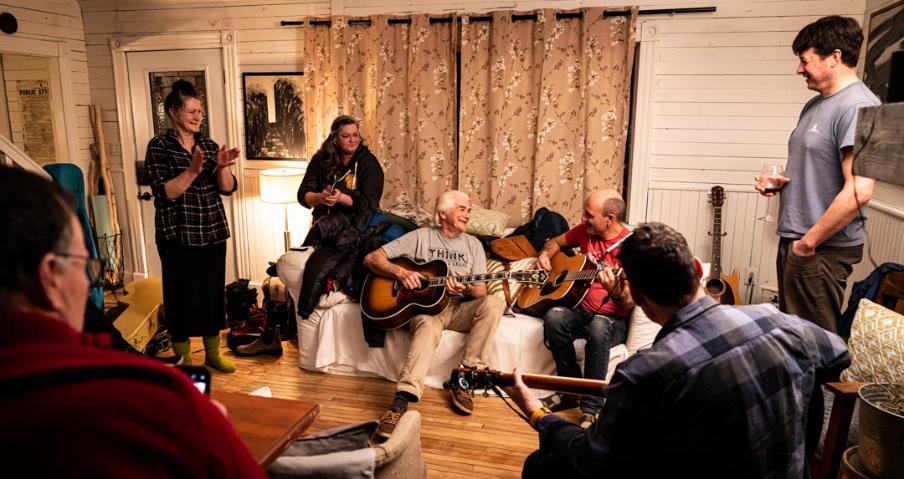
When the evenings over come back to a roaring fire at the hostel..perfect end to a perfect day..time to plan tomorrow's adventures.
